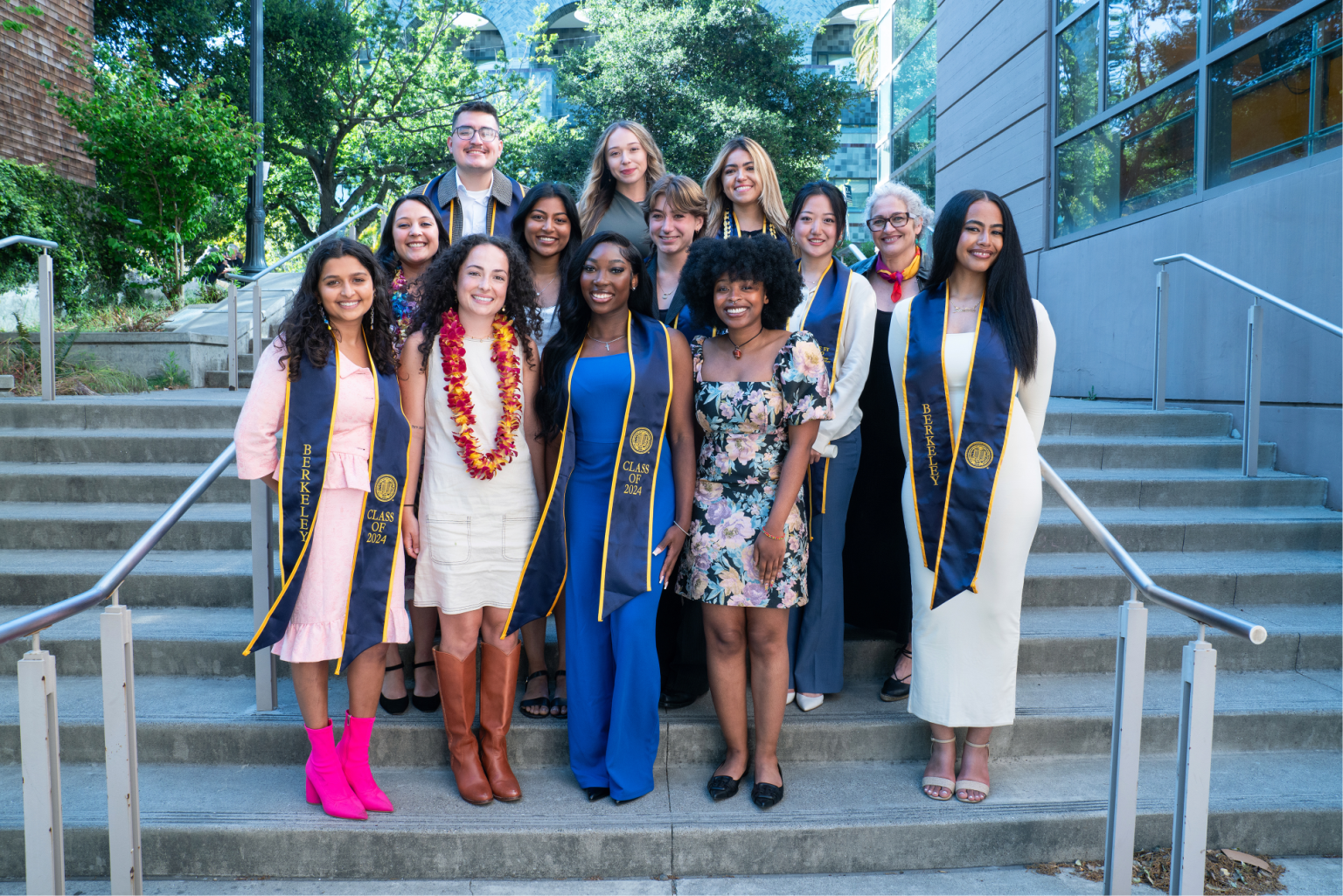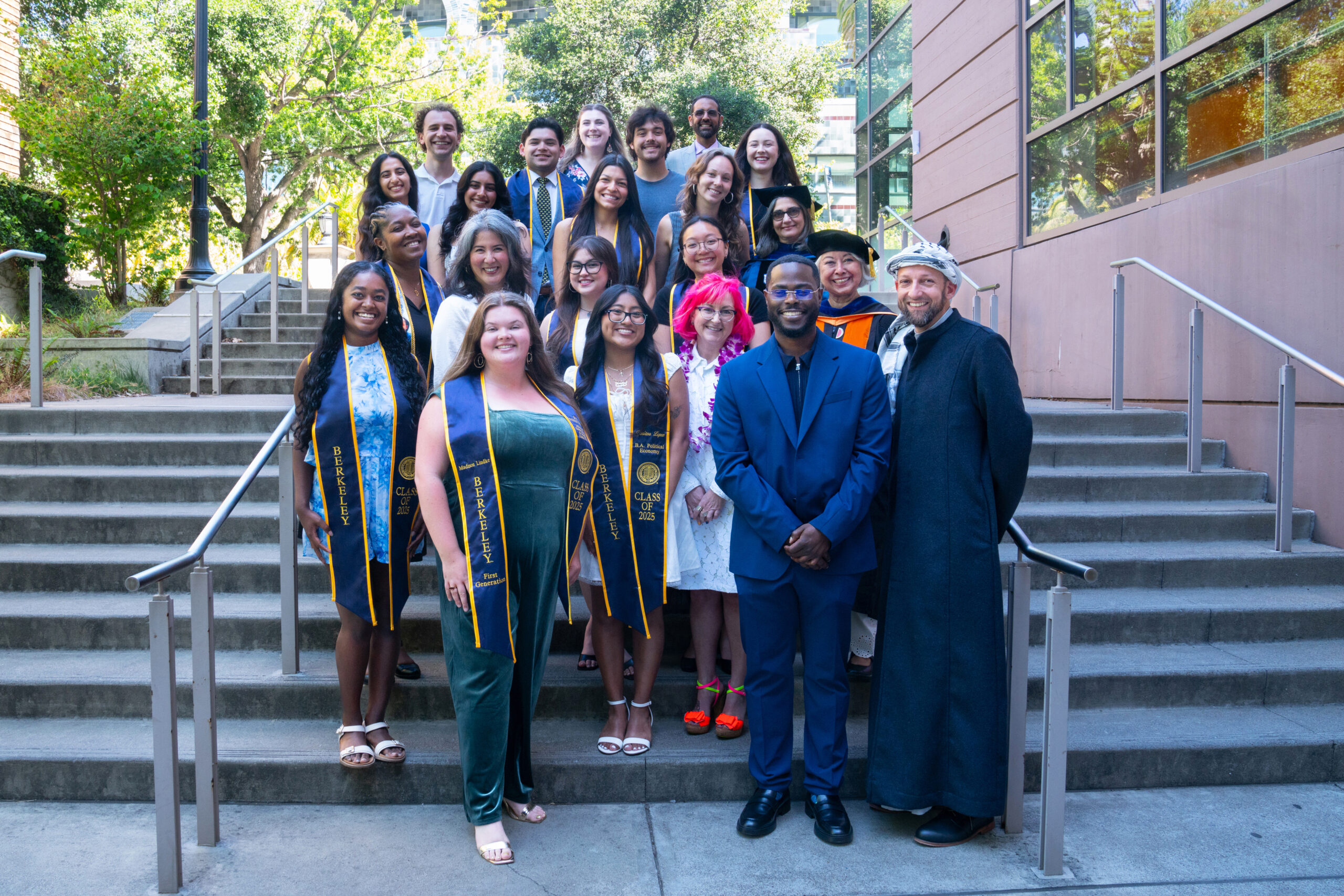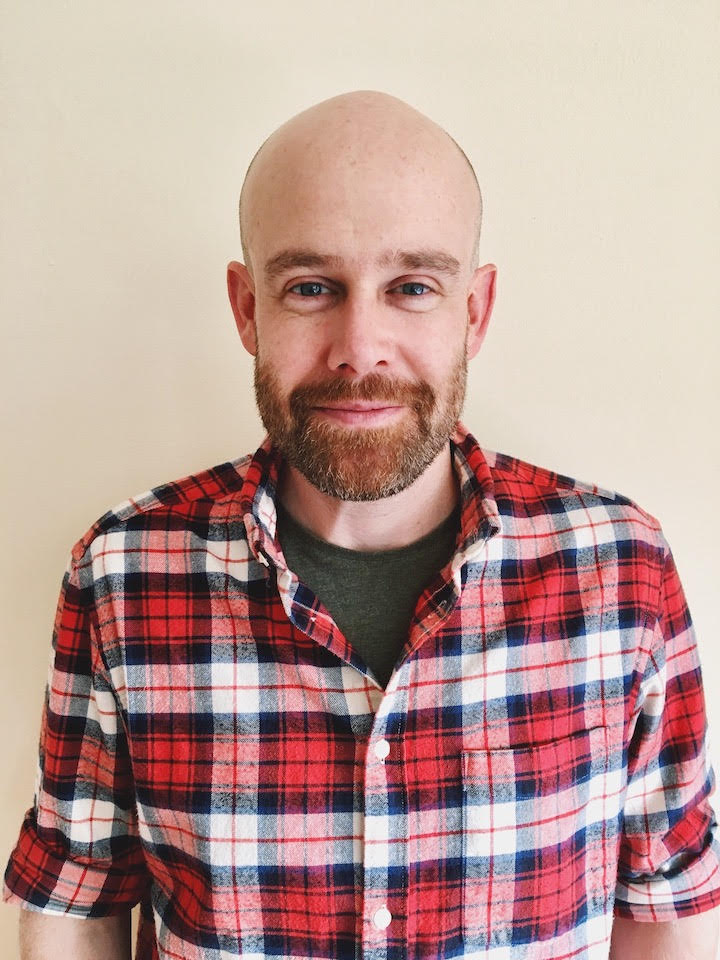Finding success in college is not easy, particularly when you start at the height of a global pandemic. And doubly so when your studies entail a nuanced understanding of and unwavering willingness to act on local and global poverty and inequality.
Last month, the Global Poverty and Practice minor’s Class of 2024 celebrated a hard-earned and well-deserved commencement with an intimate ceremony in Sutardja Dai Hall’s Banatao Auditorium. Over 30 students from 20 different majors had classes and practice experiences upended by the pandemic, Prof. Clare Talwalker reminded the graduates and their families, all while war, oppression, and suffering did not abate.
“As champions of social justice,” added Prof. Dan Fletcher, Blum Center faculty director, “they represent the best of UC Berkeley.”
The curveballs thrown by the pandemic, however, did not compromise the intellectual rigor of the 17th GPP class’ courses of study.
“The classes were not prescribing a way to achieve social and economic equality. I wasn’t given a linear path where I could work my way up the ladder like some corporate job,” said Alisha Dalvi, a student commencement speaker and political science major. “Rather, GPP classes encouraged us to narrow in on ourselves and our community. I first had to come to terms with my engagement in systemic inequality before I jumped to finding a solution.”
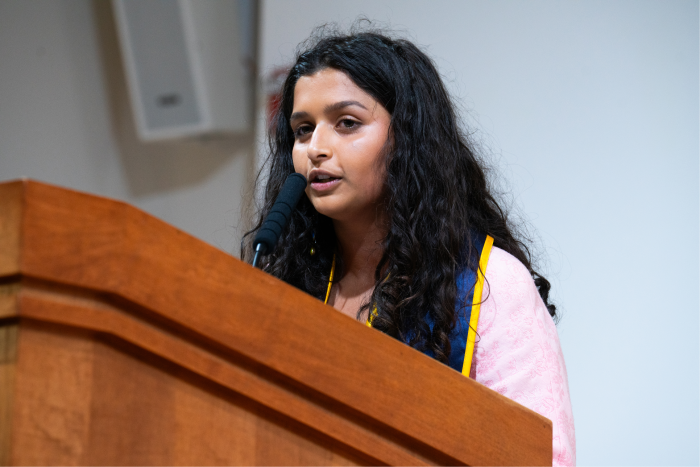
Dalvi did her practice experience in Mumbai, doing research to identify the pros and cons of Indian government programs meant to assist farmers with sustainable agriculture practices. For her, GPP also fostered a vibrant community.
“The students in the minor are a very specific Berkeley niche,” she told her peers. “Meeting someone who is also a GPP student is like meeting a long-lost best friend. You’re guaranteed to discuss how fantastic the classes are, followed up by a complex conversation of structures of power.”
For Quiona Zamara Trimmell, the afternoon’s other student commencement speaker, the minor became a lesson in individual and communal commitment. The anthropology major, GPP peer advisor, and soon-to-be University of Sussex master’s student reflected on how the “mosh pit” of experiences we have throughout our lives as well as the values passed on to us lead us to our commitments.
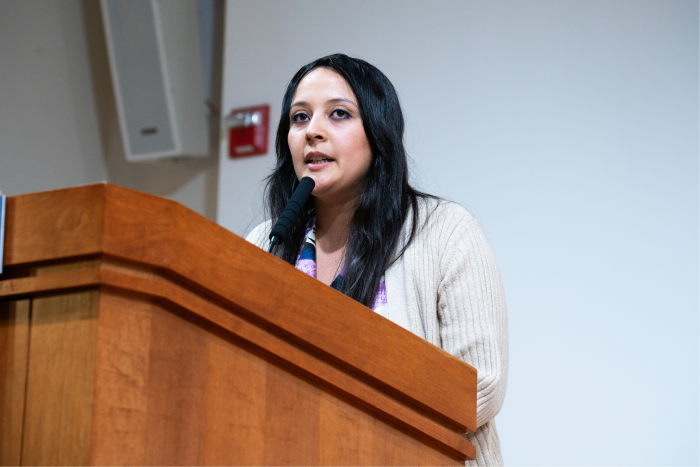
“My hope,” she said, “is that this will foster a sense of humility in us, a sense of gratitude for all those, whether stranger or friend or somewhere in between, that fueled our sense of commitment to that which we have chosen to stand for” — namely, the long, slow, hard work of effecting change, rooted in community. “The commitment seems all the stronger when we know each other, when we can be held accountable, when we eat together, when we laugh and cry together, and when we care and love for one another,” Trimmell said.
GPP alumnus Christian Guerrero gave the keynote address. The Class of 2019 graduate — an arts and media activist, podcaster, and coffee importer — worked with the People’s Solidarity and Education Tours in the Philippines as his practice experience and now works at Tides Network, a nonprofit philanthropy organization.
The work students have already done during college is valuable in and of itself, he said, and should be recognized and spoken for by students as such. “Learn to advocate for yourselves so you can be in a position to serve others,” Guerrero said. “And connected to that is to acknowledge your own position and privilege and play your part” accordingly.
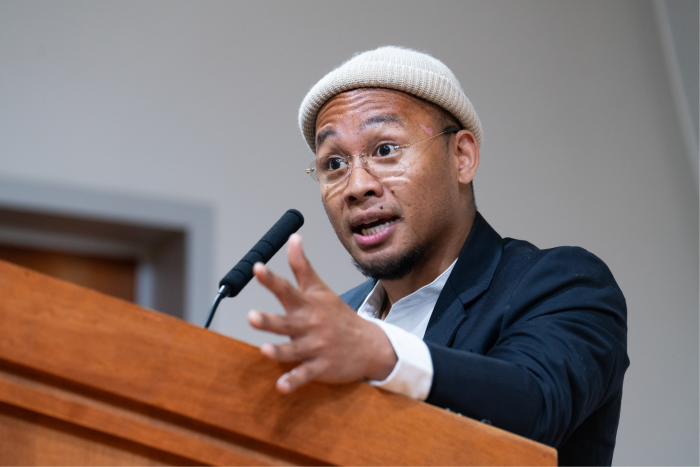
Learn the language of power, he added, so that you can write your own story and a new story for your communities: “The more fluent you are in the language of power, the more you’ll see the opportunities to shift that power and create the impact you want to see.”
Echoing Trimmell, Guerrero pointed out that this crucial, often heavy social justice work is made all the more bearable by the support provided by the graduates’ families, friends, and communities — relationships they should hold fast to. And this critical work, and the perspectives the Class of 2024 brings, do not need others’ permission.
“Y’all, as graduates, have more than enough knowledge and are well equipped to take on the world,” Guerrero said. “I don’t like it when people say, ‘Wait until you get into the real world’ to students — very paternalistic, right?”
“It should be the other way around: The world is waiting for y’all to contribute, to give your own knowledge, to take these learnings and apply it out there. We need y’all.”

